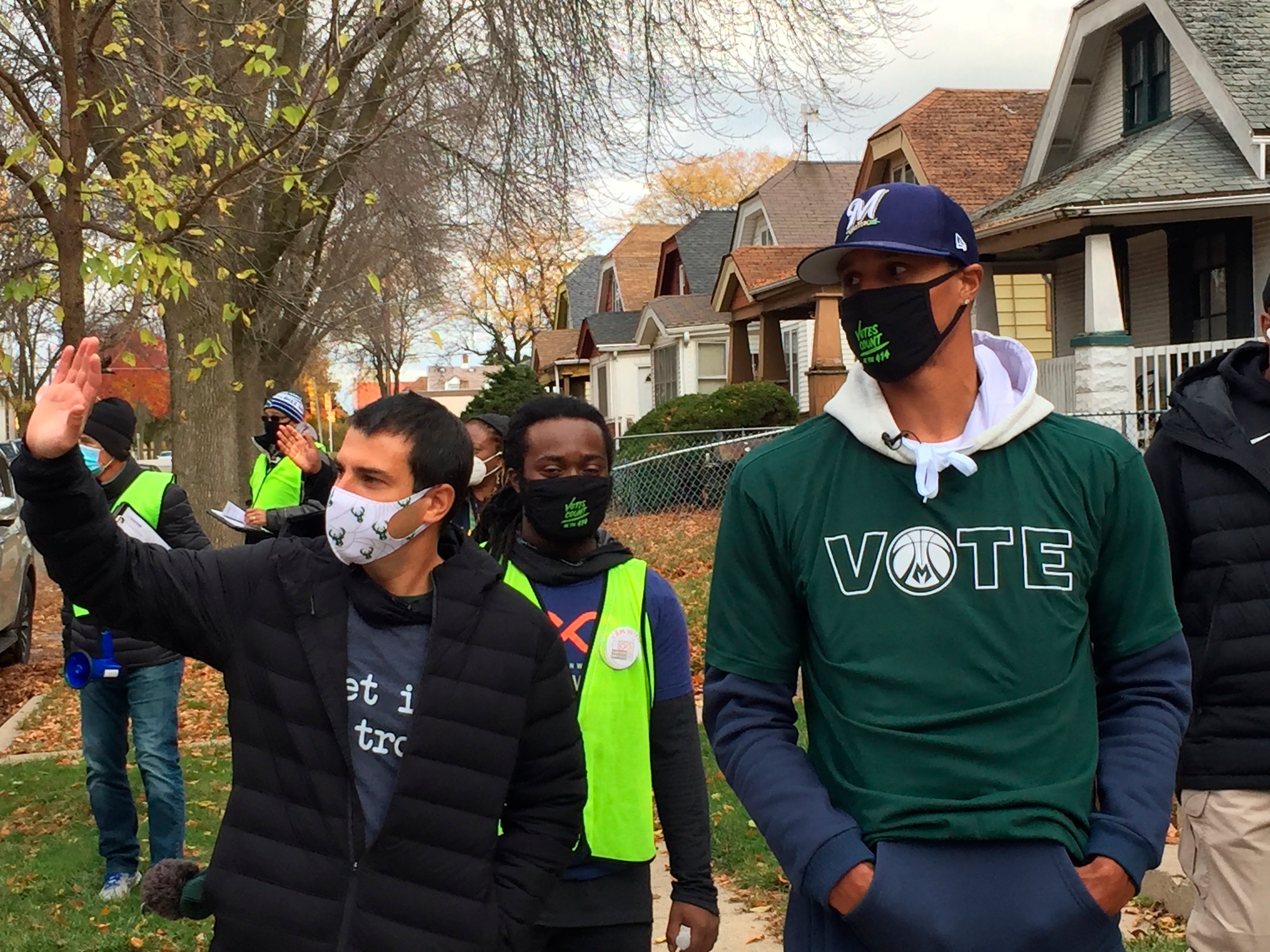33-year-old Bucks exec Alex Lasry gets COVID vaccine early
A 33-year-old Milwaukee Bucks executive and son of a billionaire received the coronavirus vaccine this week at a senior living center in Milwaukee despite not being part of a group currently eligible for the shots in Wisconsin

Your support helps us to tell the story
From reproductive rights to climate change to Big Tech, The Independent is on the ground when the story is developing. Whether it's investigating the financials of Elon Musk's pro-Trump PAC or producing our latest documentary, 'The A Word', which shines a light on the American women fighting for reproductive rights, we know how important it is to parse out the facts from the messaging.
At such a critical moment in US history, we need reporters on the ground. Your donation allows us to keep sending journalists to speak to both sides of the story.
The Independent is trusted by Americans across the entire political spectrum. And unlike many other quality news outlets, we choose not to lock Americans out of our reporting and analysis with paywalls. We believe quality journalism should be available to everyone, paid for by those who can afford it.
Your support makes all the difference.Alex Lasry, a 33-year-old Milwaukee Bucks executive and son of a billionaire, received the coronavirus vaccine this week at a senior living center in Milwaukee despite not being part of a group currently eligible for the shots in Wisconsin.
“This week I was vaccinated!” Lasry tweeted on Friday after the Milwaukee Journal Sentinel first reported it. “My wife got a call from her uncle that works in a facility that had extra doses that were going to go to waste if not used right away. With Lauren early in her pregnancy, we wanted to ensure our home, and entire community is safe for everyone.”
Lasry, a New York City native who is a hedge fund manager, is considering running for the U.S. Senate in Wisconsin in 2022. He was also host committee chair for the 2020 Democratic National Convention, which was awarded to Milwaukee but moved online due to the pandemic.
Lasry, the son of Bucks co-owner Marc Lasry, tweeted that his vaccination was “pure happenstance, but I’m incredibly thankful.” Alex Lasry told the newspaper his wife’s uncle who called about the vaccine is rabbi at Ovation Chai Point Senior Living.
“It’s safe, healthy and how we’re all going to finally get out of this pandemic,” he tweeted. “As the rollout continues, if available, please don’t let any vaccines go to waste! Get vaccinated!”
Gov. Tony Evers said during a Friday update on Wisconsin's vaccination efforts that state health officials are encouraging providers to use all the vaccine they have.
“They should just get it in somebody’s arm,” Evers said.
As for Lasry specifically, Evers said he’s not sure what happened. Evers, who is 69, is himself waiting for word on when he can get a shot, since they're now open to everyone over age 65 in Wisconsin.
Lasry said he didn’t receive special treatment because of his position with the Bucks, his political aspirations or his father’s wealth.
“That has nothing to do with anything,” Lasry told the newspaper. “Honestly, if I wasn’t married to Lauren, I don’t know that I would have gotten a call or known about it.”
Evers said he would rather see providers administer vaccine outside the priority phases than let it go to waste, saying the number of doses administered outside the protocols is going to be a tiny percentage of all inoculations.
State Department of Health Services Deputy Secretary Julie Willems Van Dijk said sometimes providers can get more doses out of individual vials than planned and no one wants to waste any vaccine. Many providers keep waiting lists of people they can call quickly if doses end up exceeding appointments, she said.
“We don’t want a dose wasted,” she said. “We need all these doses in arms. That’s how this can happen, even with excellent planning.”
All vaccine providers have signed an agreement to provide doses according to the state’s priority phases, Van Dijk said. If providers perpetually violate the guidelines, state officials will talk with them and could decide to stop sending those providers any doses, she said.
“We’ve talked to a number of places and have seen changes in behavior on that,” she said. ”(But) there is no way we can police every single vaccine that is put in an arm at the end of the day.”